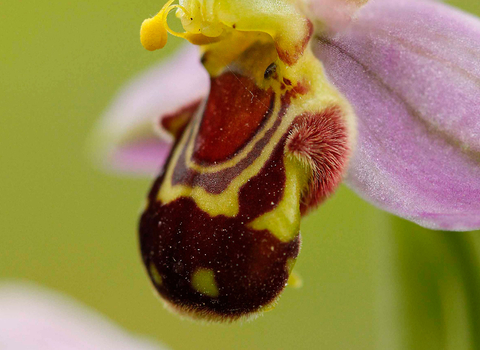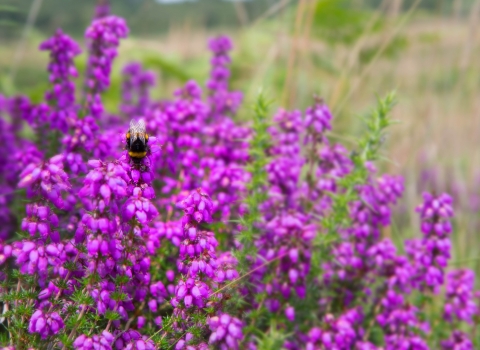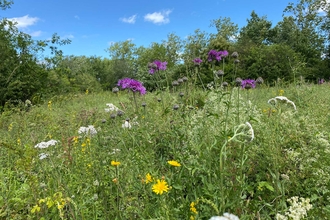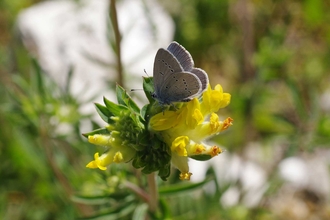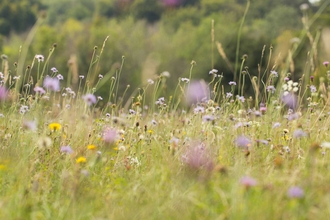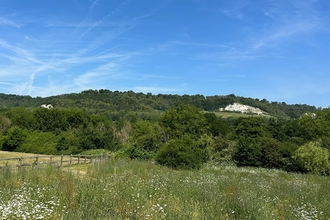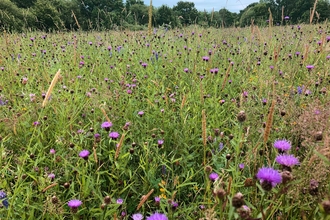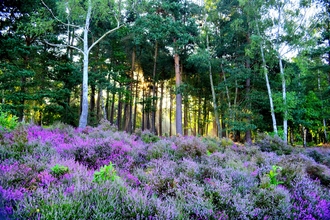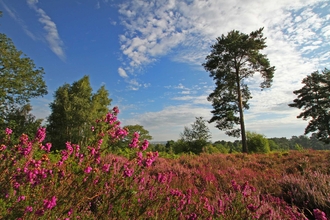Where to see wildflowers
Whether it is carpets of blooming purple heather, the exotic blooms of rare orchids, or the waving heads of oxeye daisies – Surrey's wild meadows and heathlands hum with life. With just 15,000 hectares of species-rich neutral grassland remaining in the UK, these vibrant and life-filled fragments are true wildlife gems.
Grassland flora
Chalk grassland
During summer, our chalk grasslands are bursting with blooms. Species such as wild thyme, dropwort, bird’s-foot-trefoil, salad burnet, greater knapweed, small scabious and wild marjoram are common on chalk. Kidney vetch may also be present and is the food plant of the rare small blue butterfly.
Lowland meadows
Moist, deep soils that are neither particularly acid nor lime-rich support species such as meadow buttercup, common sorrel, meadow vetchling and oxeye daisy, followed later in the summer by taller species such as meadowsweet and great burnet. Wetter, less fertile sites support marsh marigold.
Drier meadows and pastures support flowers like cowslip, red clover, knapweed, oxeye daisy and lady’s bedstraw.
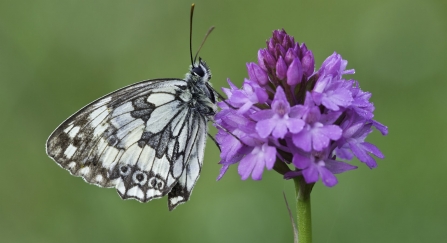
© Guy Edwardes/2020VISION
Amazing orchids
There are some 50 species of wild orchid in the UK. Many are incredibly rare and can often only be found on nature reserves. The chalky geology found on parts of the North Downs in Surrey provide ideal habitat for a selection of these beautiful plants. Check out some of the top species that you might be lucky enough to see below.
Common spotted orchid
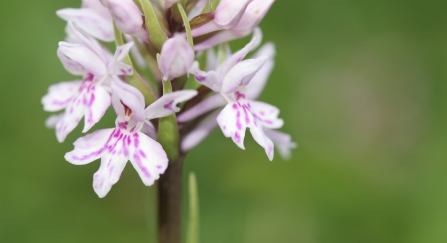
© Philip Precey
The Common spotted-orchid is the most common of all UK orchids and the one you are most likely to see. It grows in many different habitats, including woodland, roadside verges, hedgerows, old quarries, sand dunes and marshes; sometimes so many flowers appear together that they carpet an area with their delicate, pale pink spikes. It is in bloom between June and August.
Pyramidal orchid
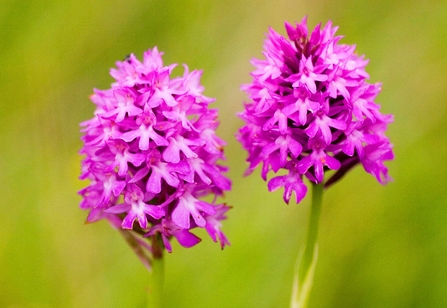
© Paul Lane
The Pyramidal orchid lives up to its name - look for a bright pinky-purple, densely packed pyramid of flowers atop a green stem. It likes chalk grassland, sand dunes, roadside verges and quarries. It flowers in June and July.
Bee orchid
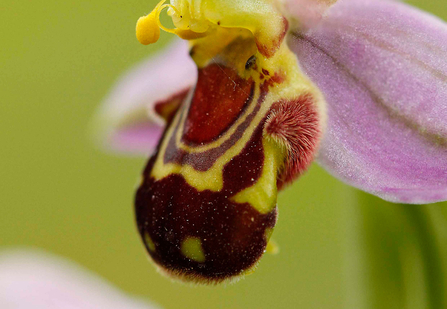
© Jon Hawkins - Surrey Hills Photography
The Bee orchid is a sneaky mimic - the flower’s velvety lip looks like a female bee. Males fly in to try to mate with it and end up pollinating the flower. Sadly, the right bee species doesn’t live here, so this orchid is self-pollinated in the UK.
Man orchid
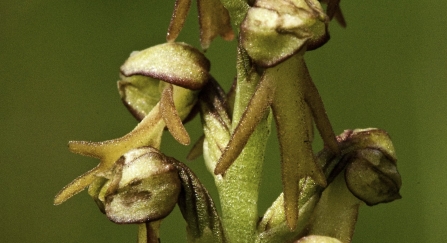
© Les Binns
Largely confined to the South East, the man orchid takes its name from the shape of the flowers, which look like little yellow stick men. This orchid favours alkaline soils produced by chalk and limestone.
Bird's-nest orchid
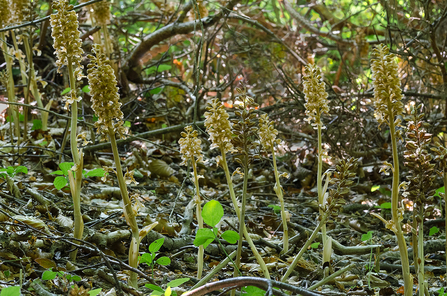
© Les Binns
The Bird's-nest orchid is a very strange plant. It is leafless and without the green chlorophyll of other plants that enable them to gain energy from sunlight through photosynthesis; instead, it grows as a parasite on the roots of trees, gaining its nutrients from its host. Usually found in woodland, particularly under Beech trees, this almost sickly looking, yellow plant appears from May to July.
Common twayblade
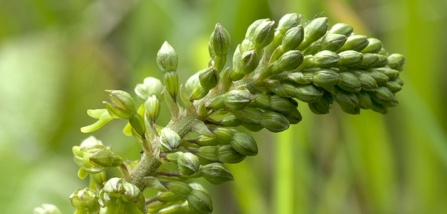
© Northeastwildlife.co.uk
An easily overlooked orchid, the common twayblade is yellow-green and less showy than other UK orchids. Look for it in woodlands and grasslands on chalky soils, in particular. It is in bloom from May to July.
Broad-leaved helleborine
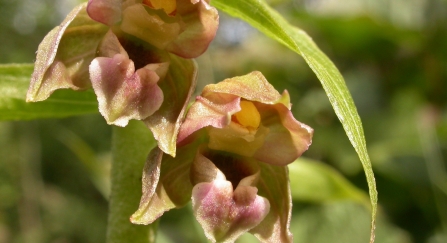
© Philip Precey
A tall orchid of woodland and scrub, the broad-leaved helleborine has greenish, purple-tinged flowers that look a little 'drooping'. Strongly veined, oval leaves spiral around its stem. It flowers from July to September.
Greater butterfly-orchid
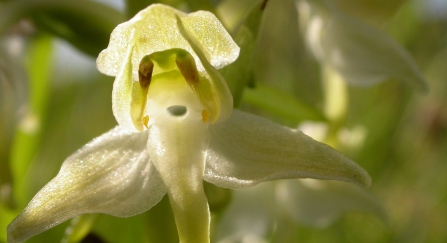
© Philip Precey
The Greater butterfly-orchid is a tall orchid of hay meadows, grasslands and ancient woodlands. It has whitish-green flowers that have spreading petals and sepals - a bit like the wings of a butterfly. It is in flower between May and July.

